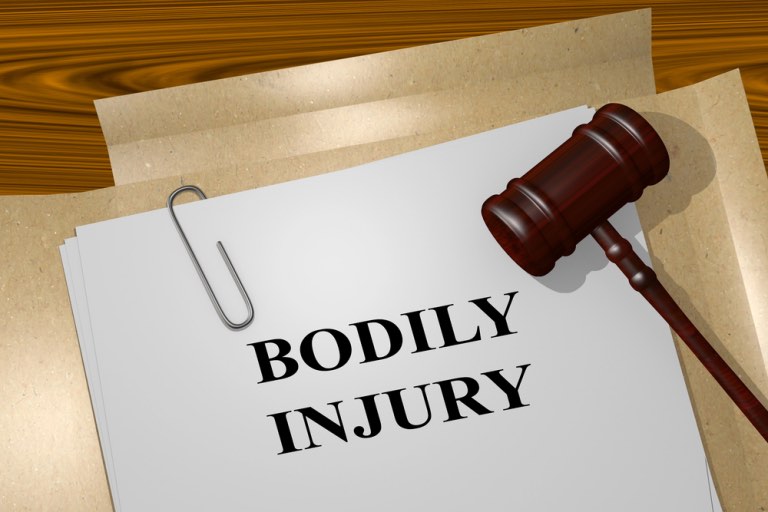Bodily Injury vs Personal Injury: Key Differences in Damages and Compensation

Legal terms for accidents and injuries often use “bodily injury” and “personal injury”. Yet, they refer to different parts of the law. They can affect the compensation someone might get.
Knowing these differences is key. It’s key for anyone in an accident or seeking compensation.
This blog post aims to examine bodily injury and personal injury. It will highlight the differences between bodily injury vs personal injury. Read on to learn more.
What is Bodily Injury?
Bodily injury is a specific term used in the context of insurance policies and criminal law. It refers to physical injuries sustained by an individual due to an accident or intentional harm. Examples of bodily injuries include:
- Broken bones
- Cuts and bruises
- Burns
- Internal injuries
Damages in Bodily Injury Cases
When discussing “damages” in the context of bodily injury, we’re referring to compensation for the physical harm endured. The following types of damages are pursued:
Medical Expenses
This includes costs for hospital stays, surgeries, doctor visits, and physical therapy. It also includes costs for prescription medications and any other needed medical treatments. This compensation aims to cover the costs incurred and any future medical needs related to the injury.
Lost Wages
If the injury prevents the victim from working, they may be entitled to compensation for lost income. This can include past wages lost due to time off work for recovery, as well as future earning capacity if the injury results in a long-term disability.
Pain and Suffering
They are harder to quantify. They compensate for the physical pain and emotional distress caused by the injury. This may include psychological effects such as anxiety, depression, and PTSD.
Insurance for Bodily Injury
Most auto insurance policies include Bodily Injury Liability (BIL) coverage. This coverage pays for the injured party’s medical expenses and lost wages if you’re at fault in an accident. It’s important to note that BIL coverage does not cover your injuries; it only applies to others involved in the accident. To cover your medical expenses, you would need to have Personal Injury Protection (PIP) coverage.
Filing a Bodily Injury Claim
When an accident occurs and you get hurt, first ensure that all injuries are documented. Do this through medical evaluations. It’s crucial to keep detailed records of all medical treatments, expenses, and any time off work.
Notify the insurance company and provide details of the accident for a bodily injury claim. Submit all medical records, bills, and proof of lost wages. The insurance company will usually make a settlement offer.
It’s important to review this offer carefully and negotiate if necessary. If a satisfactory settlement cannot be reached, the case may proceed to court.
What is Personal Injury?
Personal injury is a broader legal term. It includes bodily injuries and non-physical ones. It pertains to harm caused by another party’s negligence or intentional actions, which may include:
- Physical injuries (similar to bodily injury)
- Emotional distress
- Defamation
- Invasion of privacy
Damages in Personal Injury Cases
The scope of damages in personal injury cases is broader and can include the following:
Economic Damages
Like bodily injury, this includes medical expenses and lost wages. Yet, it can also encompass property damage, such as a totaled vehicle after a car accident.
Also, economic damages may include future financial losses. These are, for example, lost earnings or ongoing medical expenses.
Non-Economic Damages
These make up for intangible losses. They include emotional distress, loss of companionship, and reduced quality of life.
These damages are subjective and hard to quantify. They’re often the focus of much negotiation in a personal injury case.
Punitive Damages
In some cases, the defendant’s conduct is very bad or reckless. In these cases, punitive damages may be awarded to punish and deter the wrongdoer. These damages are not meant to compensate the victim but rather to punish the defendant.
Filing a Personal Injury Claim
Personal injury claims are typically filed in civil court and can arise from various situations, including car accidents, slip and fall incidents, medical malpractice, and defamation cases. If successful, the injured party may receive compensation from the liable party or their insurance company.
Personal injury claim processes are broader and can be more complex due to the inclusion of non-economic damages and potential punitive damages. Just like with bodily injuries, immediate medical attention is critical to document injuries. Given the complexity, engaging a personal injury attorney can guide through the legal process.
The attorney will gather evidence, interview witnesses, and compile all necessary documentation. A formal complaint is filed in civil court, outlining the damages sought. If you need legal help, get assistance from Allen & Allen.
Key Differences Between Bodily Injury and Personal Injury
While bodily injury and personal injury share similarities in terms of the physical harm involved, several key differences set them apart:
Scope
Bodily injury is focused solely on physical harm, while personal injury encompasses both physical and non-physical injuries. This means that personal injury cases can involve a broader range of damages.
Legal Terminology
Bodily injury is predominantly used in the context of insurance policies and criminal law, while personal injury is a legal term used in civil court cases.
Damages Available
The types of damages available in bodily injury and personal injury cases differ. While both may include medical expenses and lost wages, personal injury cases can also involve non-economic damages and punitive damages.
Insurance Coverage
Bodily injury liability insurance specifically covers physical injuries to others in an auto accident. Personal injury claims can involve various insurance policies, including homeowners, renters, and even professional liability insurance.
Understanding the Differences Between Bodily Injury vs Personal Injury
Understanding the differences between bodily injury vs personal injury is essential for anyone involved in an accident or seeking compensation for harm suffered.
If you or a loved one has been injured due to someone else’s negligence or intentional actions, it’s crucial to consult with a qualified attorney who can guide you through the complexities of your specific case. Legal expertise can make a significant difference in securing the compensation you deserve.
For more information on this topic or to explore your legal options, feel free to contact our experienced team of personal injury attorneys today.





